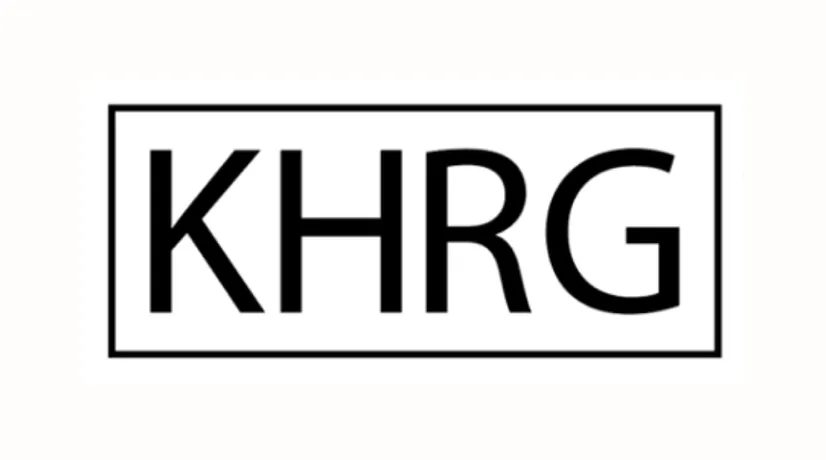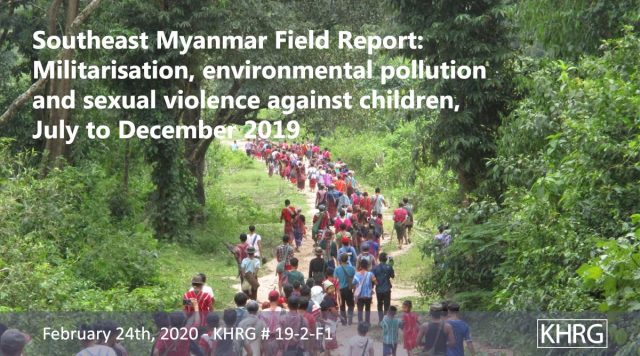Southeast Myanmar Field Report: Militarisation, Environmental Pollution And Sexual Violence Against Children, July to December 2019
24 February 2020


Introduction
This Field Report analyses information collected by KHRG field researchers and covering the period between July and December 2019.
The Tatmadaw maintained a strong presence all across Southeast Myanmar, and kept supplying troops, weapons and ammunition to its army camps from its main bases in Taw Oo (Toungoo) District. On several occasions, Tatmadaw soldiers trespassed into areas controlled by the Karen National Union (KNU) in Dooplaya and Taw Oo districts. The presence of Tatmadaw soldiers there caused security concerns among the local population, and could be detrimental to the on-going peace process. In Kler Lwee Htoo (Nyaunglebin) District, contentious military road construction activities opposed by the local population and the KNU were halted during the rainy season. Villagers organised several demonstrations against this project, but road works resumed on November 11th 2019.
Over the reporting period, economic actors continued to carry out their activities with little regard for their impacts on the livelihoods of the communities living in the surrounding areas. In Doo Tha Htoo (Thaton) District, cold dust from a Tatmadaw-run cement factory contaminated nearby waterways during the rainy season. As a result, civilians from at least 15 villages faced water shortages. In Mu Traw (Hpapun) and Kler Lwee Htoo districts, gold mining activities damaged forests and polluted water and soils in several village tracts. In both cases, the economic actors involved failed to secure the free, prior and informed consent (FPIC) of the local population, and did not compensate the affected communities for the damage caused.
Several cases of sexual violence against children also occurred. They included sexual violence committed by a family member, rape in the context of forced marriage, and rape by a police officer. Pressure to remain silent—whether through threats of further violence or social stigma and victim-blaming—continues to impede victims from speaking out about their situation. Even when incidents of sexual violence are reported, the abusers often go unpunished or underpunished, creating greater insecurity and trauma for the victims. Both the judicial system and the system of mental health services in Southeast Myanmar are still unable to meet the necessary standards to adequately address sexual violence as a human rights violation.
KHRG also documented several abuses by armed actors across the region during the reporting period. These included arbitrary arrest and detention, land confiscation, extortion and activities that endangered the security and safety of villagers, such as artillery live fire exercise in or near civilian areas. Private companies also continue to violate labour rights in a substantial manner, and access to education and healthcare remains challenging in remote areas.
၎
င
၎
၎
၎
င
၎
၎
၎
င
၎
၎
Announcements
28 February 2025
Asian NGO Network on National Human Rights Institutions , CSO Working Group on Independent National Human Rights Institution (Burma/Myanmar)
Open letter: Removal of the membership of the dis-accredited Myanmar National Human Rights Commission from the Southeast Asia National Human Rights Institution Forum

Progressive Voice is a participatory rights-based policy research and advocacy organization rooted in civil society, that maintains strong networks and relationships with grassroots organizations and community-based organizations throughout Myanmar. It acts as a bridge to the international community and international policymakers by amplifying voices from the ground, and advocating for a rights-based policy narrative.